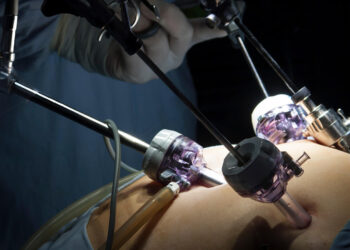
- Chronic cannabis use is bad for your heart, whether you smoke it or consume edibles, according to a new study.
- Researchers found evidence of endothelial dysfunction, an upstream risk factor for cardiovascular disease, in cannabis users regardless of how they used the substance.
- The research adds to a growing body of research suggesting that cannabis is not benign.
A growing
The use of THC-containing cannabis edibles has surged in popularity as legalization has spread across the United States.
Endothelial dysfunction is a form of heart disease that impairs blood vessels from dilating. Endothelial cells are a thin membrane that lines the inner surface of blood vessels and helps regulate blood flow.
“The bottom line is that smoking marijuana does not appear to avoid the harmful vascular effects of smoking tobacco, and neither does frequent use of THC edibles,” Matthew L. Springer, PhD, professor of medicine at UCSF, and senior author of the research, told Healthline.
Other experts agreed, but with some caveats.
“While this study does have limitations, including an inability to prove a direct causal role, it adds to the growing sense that marijuana is not benign, and may be associated with risk for heart disease,” said Nicholas Leeper, MD, professor of vascular surgery and cardiovascular medicine at Stanford Medicine. Leeper was not involved in the study.
“Most prior research has focused on smoking rather than ingesting THC, so this study adds new evidence that edibles may also negatively impact vascular health,” he told Healthline.
The study, led by researchers at UC San Francisco, examined several measures of vascular health in three distinct groups: chronic cannabis smokers, chronic users of THC edibles, and non-users.
The study included 55 participants — males and females with an average age of 31 — who were healthy and had no regular exposure to tobacco through smoking, vaping, or secondhand smoke.
Chronic cannabis use was defined as:
- smoking three or more times per week for at least one year
- consuming three or more edibles per week for at least one year
Cannabis smokers in the study had an average of 10 years of chronic use, while those who took edibles averaged five years.
Researchers then studied three distinct measures of vascular function in these groups:
- Flow-mediated dilation (FMD): How well the blood vessels can relax and widen in response to blood flow — a key function of healthy arteries.
- Pulse wave velocity (PWV): a widely used measure of arterial stiffness.
- Nitric oxide (NO) production: NO is essential to heart health and vasodilation.
Both cannabis-using groups showed similar declines in FMD — about half as much as non-users — indicating reduced vascular function. Additionally, FMD levels in cannabis users were similar to those reported in tobacco smokers in previous studies.
“Endothelial dysfunction is one of the hallmarks of potential cardiovascular disease later in life,” said Keith C. Ferdinand, MD, FACC, the Gerald S. Berenson Chair in Preventative Cardiology at Tulane University School of Medicine. Ferdinand wasn’t involved in the study.
“Although this is not the same as having a heart attack, stroke, hypertension, or other cardiovascular disease, it suggests that in the future, in otherwise healthy persons who use cannabis, there may be an increased risk of vascular disease later,” he continued.
Endothelial dysfunction, as measured by FMD, also worsened with heavier use — a pattern known as a dose response: the more participants smoked or consumed, the worse their vascular function became.
Researchers also found that when endothelial cells were exposed in vitro to blood serum from cannabis users, NO production dropped significantly, but only in the smoking group, suggesting molecular evidence of dysfunction.
This, the authors write, suggests there may be different mechanisms of action depending on the method of cannabis use.
“This discrepancy suggests combustion byproducts (versus THC alone) may drive part of the endothelial injury in smokers,” said Leeper.
In contrast to some previous studies, the final measure, PWV, didn’t indicate any meaningful difference between cannabis users and non-users.
The study adds to growing evidence that cannabis may harm heart health — regardless of how it’s consumed.
“Neither is superior, but there may be an additional harm with smoking beyond that seen with the THC edibles,” said Ferdinand.
The study does have limitations. It cannot prove that cannabis use causes endothelial dysfunction — only that the two are linked. Still, it raises the possibility that something inherent in THC may harm heart health, apart from the usual risks of smoking — whether tobacco or cannabis.
Especially in a small study like this, firm conclusions about harm can’t be drawn, Ferdinand notes.
The study focused only on chronic cannabis use, rather than on occasional use.
Still, Springer said that based on the dose-response observed, “if they use relatively little, there’s less chance of this adverse effect on the blood vessels.”
The clear message to patients and consumers: cannabis is not a benign alternative to tobacco; and though edibles do not share all the same risks as smoking, they aren’t harmless either.
“I would caution patients that phrases like ‘natural‘ or ‘safer than tobacco’ do not mean ‘harmless.’ Chronic cannabis use — particularly smoking — shows measurable vascular harms. Emphasizing moderation, or ideally cessation, may help reduce their cardiovascular risk,” said Leeper.
Source link : https://www.healthline.com/health-news/cannabis-edibles-endothelial-dysfunction-cardiovascular-disease
Author :
Publish date : 2025-05-30 11:41:20
Copyright for syndicated content belongs to the linked Source.














